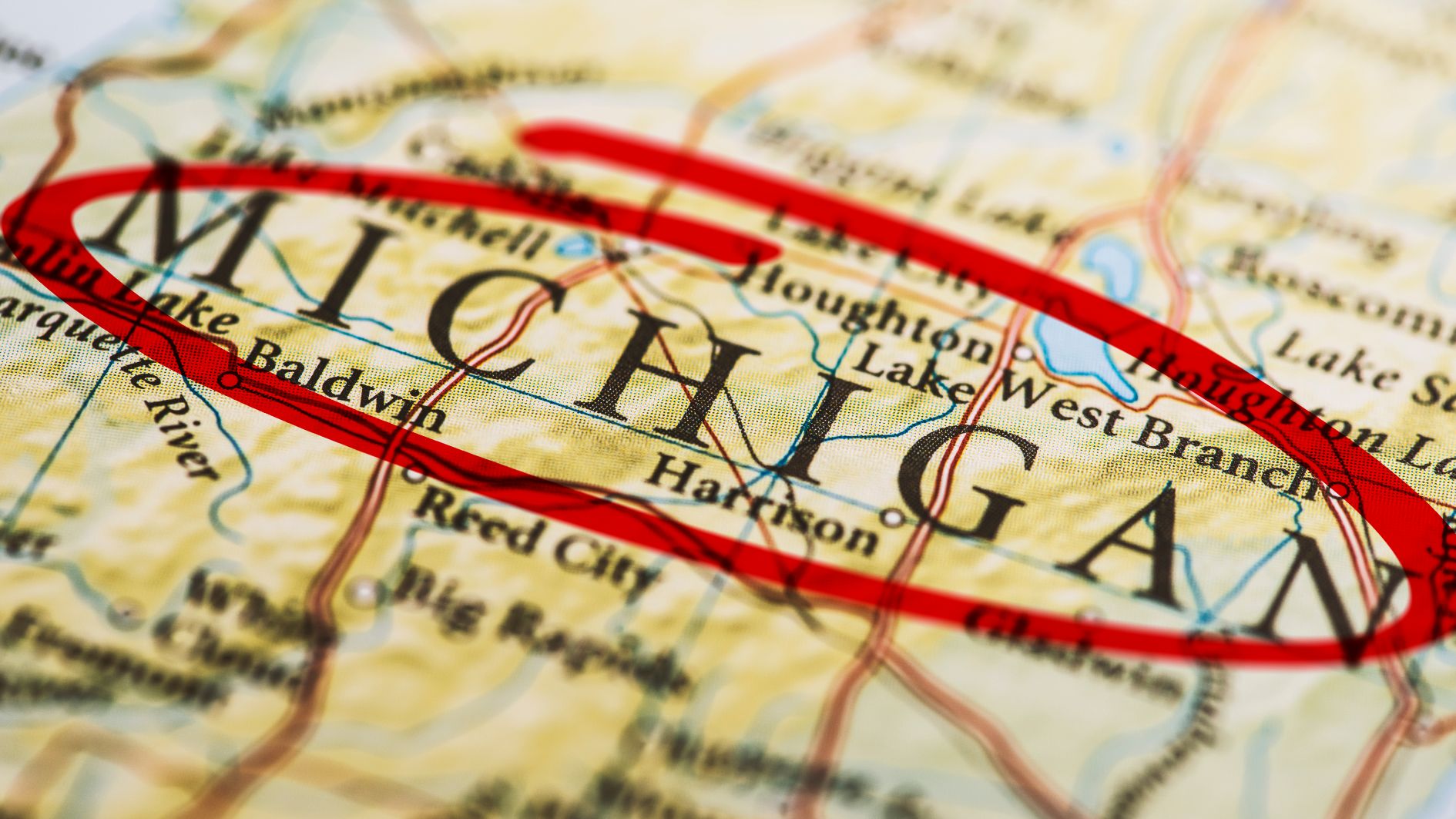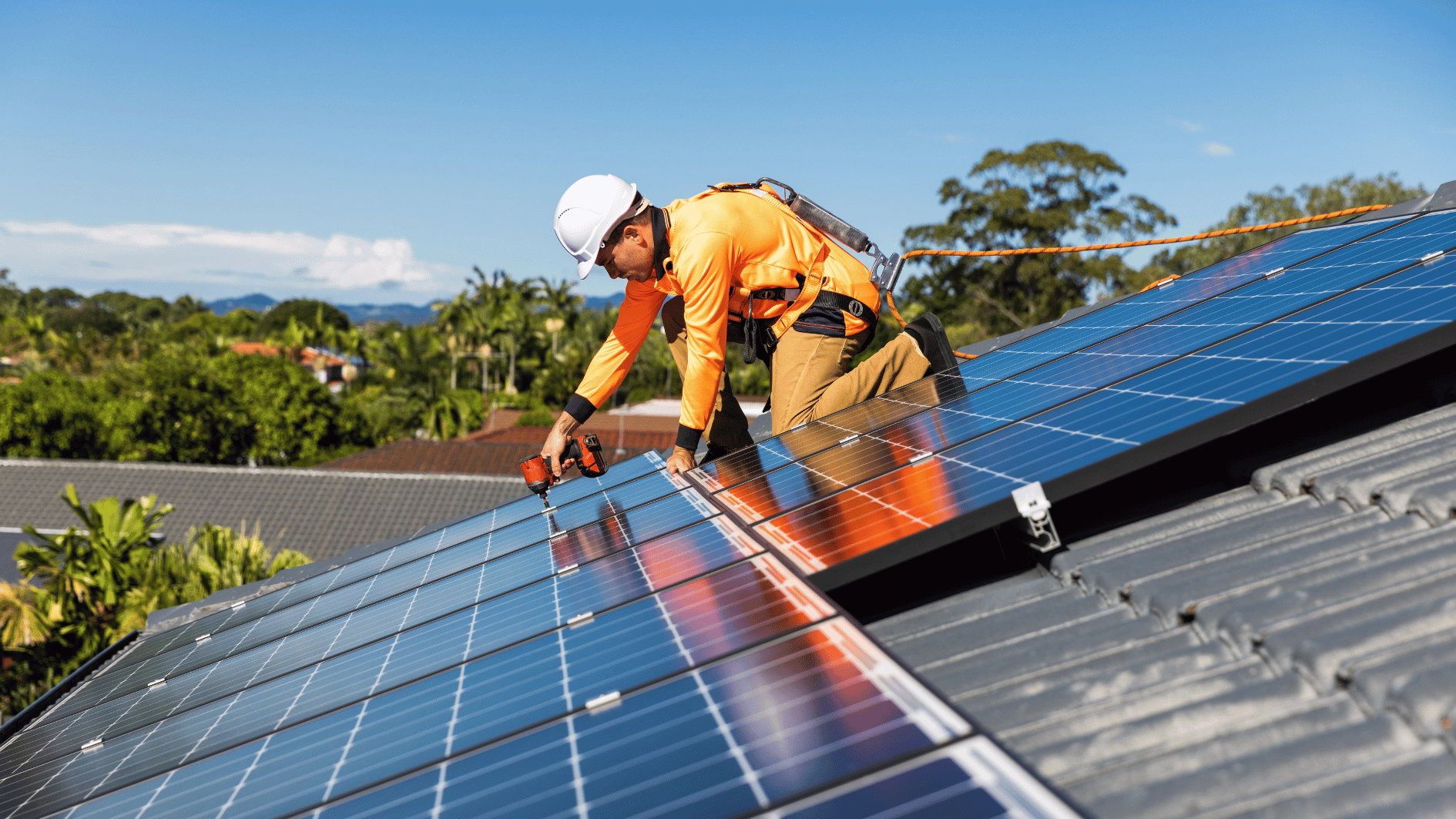Image source: Canva.com
When a homeowner decides to get solar panels, it sets off a series of to-dos. They have to find a contractor, make sure their roof is ready, and — for some of the millions of Americans living under homeowners’ associations (HOAs) — make sure their neighbors won’t complain about the shiny new additions to their roof.
Until now, the latter reason could have prevented 1.4 million Michiganders from saving money on utility bills and cutting their reliance on fossil fuels by using rooftop solar.
HOAs govern housing communities and enforce rules for residents aimed at keeping common aesthetics, meaning they could say no to solar for reasons as simple as not liking the way the panels look. A bill passed last month will prohibit HOAs in the state from banning rooftop solar and other energy-efficiency updates, like heat pumps, electric vehicle chargers, and clotheslines.
Governor Gretchen Whitmer, a Democrat, is expected to sign the legislation into law in the coming days, allowing Michigan to officially join 29 other states and Washington, D.C., in taking away this barrier to rooftop solar adoption. While it’s a shift that applies only to a specific group of homeowners, laws like these help make solar accessible for the roughly 75.5 million people in the United States who live in communities governed by HOAs.
HOA policies have significantly limited solar business in Michigan, said John Jevahirian, vice president of operations at solar installer Michigan Solar Solutions. His team is already preparing to call up customers who weren’t able to get rooftop solar when they wanted it — some of whom made it all the way to signing a contract, only to find out at the last minute that their HOA wouldn’t allow it, he said.
Michigan isn’t exactly a hotspot for solar; it ranks 26th in the nation for solar capacity, with 1,457 megawatts installed — most utility-scale. While the number of larger-scale installations has risen in the past few years, residential solar adoption has stayed relatively flat. Jevahirian said he expects the state’s rooftop solar market “will see a swing, a legitimate change in adoption from this.”
But whether or not the bill ends up providing a significant boost to residential solar adoption in Michigan, it’s certain to do one thing: allow all homeowners in the state to make their own decisions about solar adoption.
“This bill is so important because there’s no reason a homeowner should be denied access to their energy rights,” Jevahirian said.
Many of Jevahirian’s customers, who he said are on fixed incomes or in retirement, turn to solar for cost savings. The price of rooftop solar declined by 64 percent between 2010 and 2021, fueling more and more households nationwide to adopt it. Rooftop solar now produces around 10 times as much power as it did a decade earlier. Peer-reviewed studies show that rooftop solar can save homeowners almost $700 annually, depending on the costs of the system and how it’s financed.
New federal incentives are making solar even more appealing. Inflation Reduction Act tax credits provide up to 30 percent off the cost of rooftop solar. Forthcoming rebates will help low- and middle-income households save further on solar, as well as on other clean energy technologies like heat pumps and induction stoves — everyday appliances made even more cost-effective by the addition of rooftop solar.
Michigan’s new legislation comes less than a year after the state passed a strong clean energy law that committed the state to producing all its energy from clean sources by 2040, and half by 2034. The law also raised the state’s strict cap on distributed solar generation from 1 percent to 10 percent, allowing for more homeowners to participate in utility programs that pay customers for surplus solar.
In Michigan, the bill received little opposition, said Courtney Bourgoin, senior policy and advocacy manager for the Midwest region at Evergreen Action, which advocated for the legislation. Lawmakers recognized that HOA rules can be restrictive and unclear, and saw this bill as a logical correction.
Jevahirian has come across a range of ways HOAs make it more difficult for customers to get solar, including requiring that wires are hidden, metal parts of the installation are painted, and solar panels are arrayed in a perfect square. Those extra steps add expenses, which can be enough to make solar unaffordable for customers.
Under the new bill, homeowners will no longer be required to seek approval from their HOA before getting solar. HOAs will be required to adopt a solar energy policy explicitly stating any standards — but those standards can’t reduce the electricity production of the system by more than 10 percent or raise the total cost of an installation by more than $1,000.
“This is just common sense,” Bourgoin said. “It’s about energy independence, property rights — and cost savings, I think, is the biggest thing here.”
Source: Canary Media





